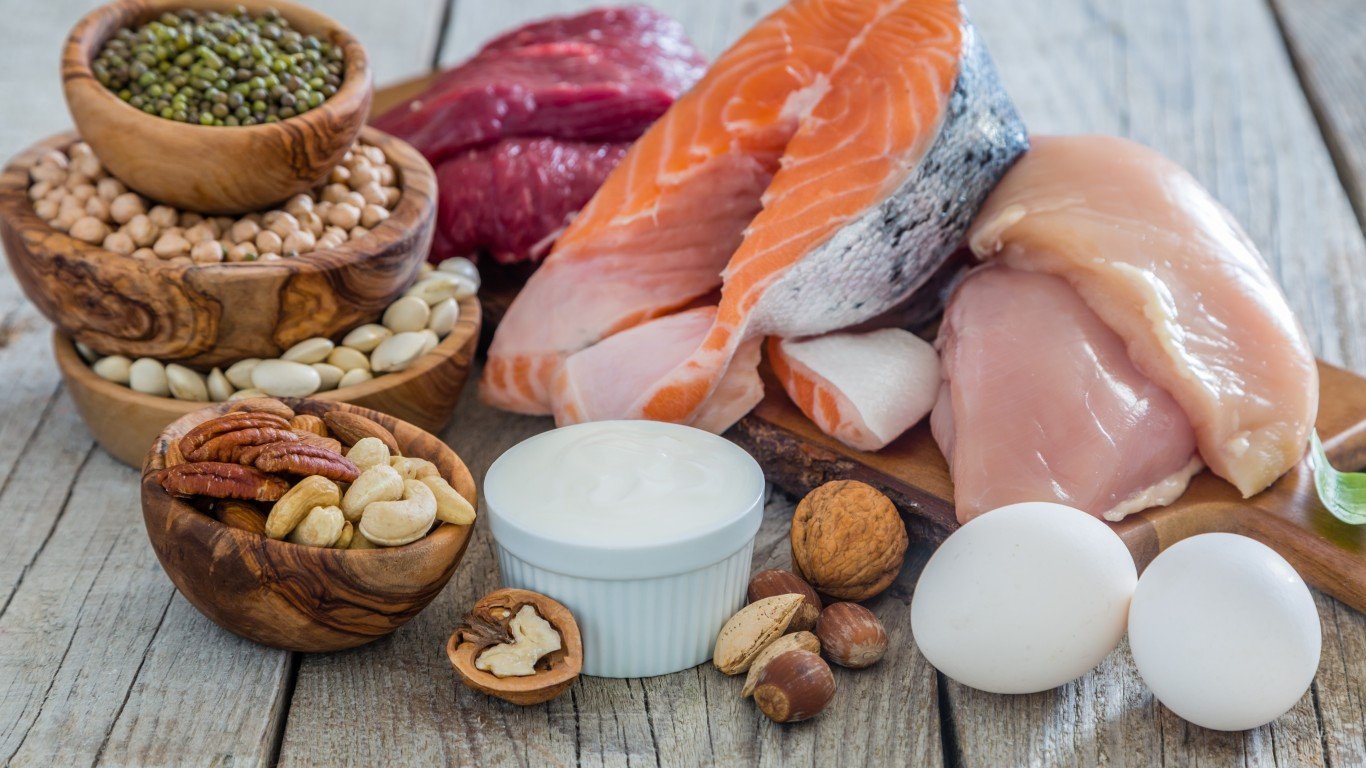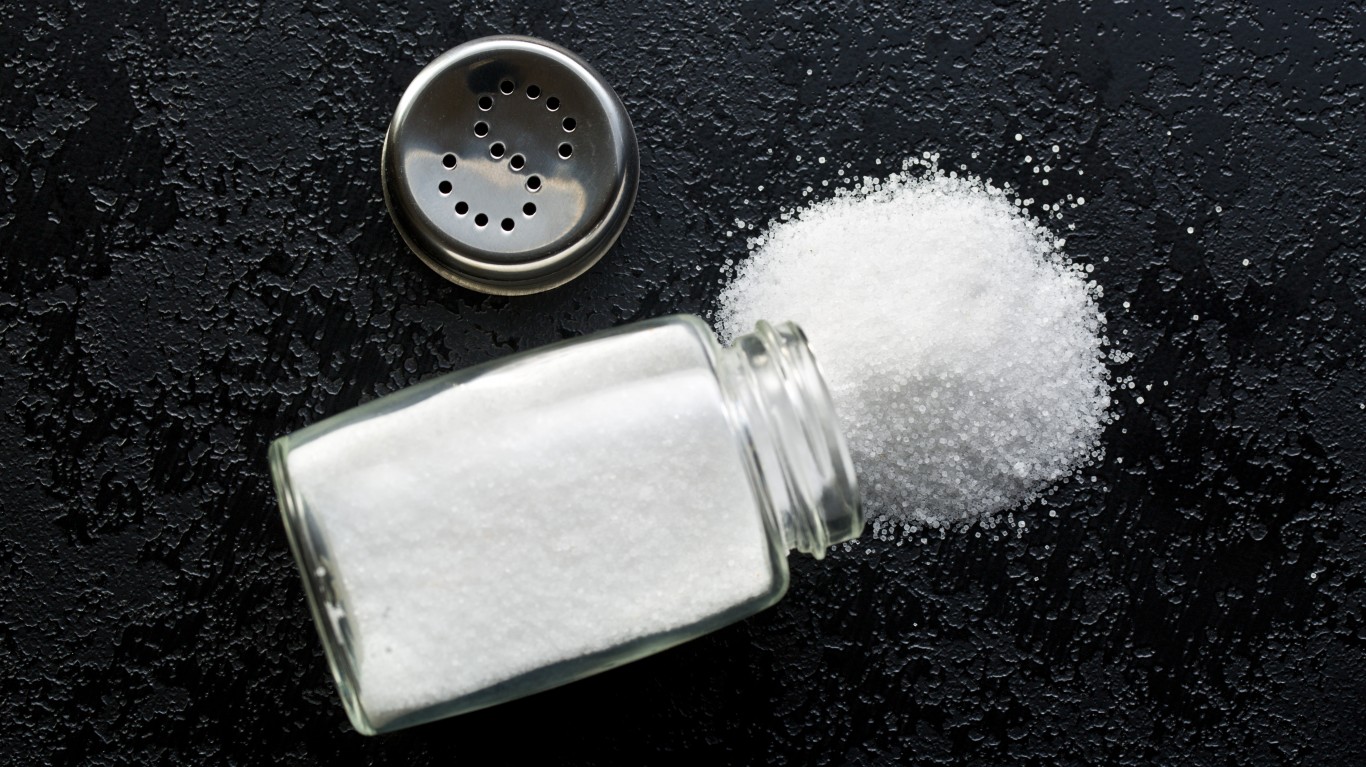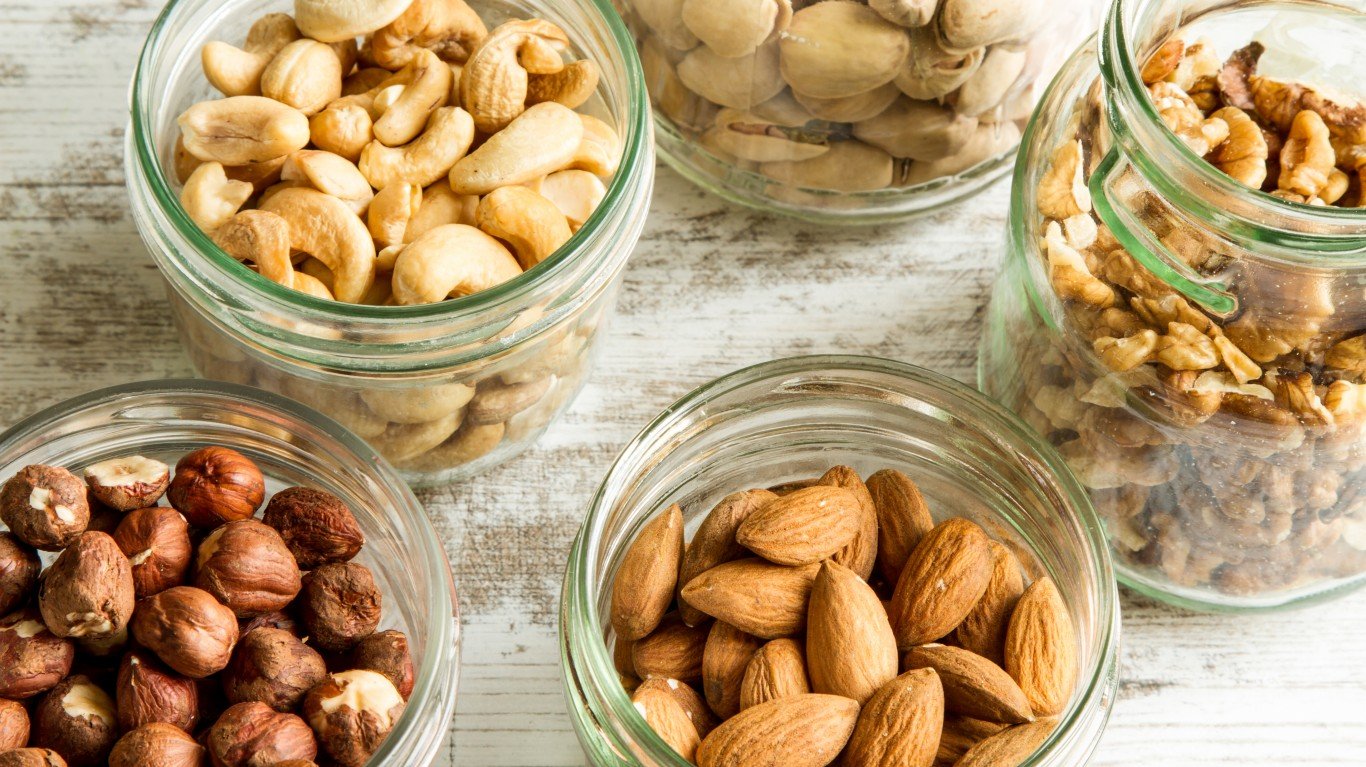
11. Eat a variety of proteins
Protein is essential to any diet, and luckily, proteins are easy to get from animal and plant sources. Proteins are made from amino acids, and nine of these — called essential amino acids — are the ones that the human body cannot produce and must ingest from food.
Eating a variety of plant protein sources, including legumes, nuts, seeds, and whole grains can provide the full range of these essential amino acids. Poultry, fish, and eggs are considered to be the healthier animal sources of protein than red meat and dairy.

12. Eat less salt
High sodium intake can lead to high blood pressure and heart disease. Because most of the sodium we ingest comes from commercially prepared foods, as opposed to home-cooked meals, it is important to read labels on pre-packaged foods and monitor sodium intake.
According to the CDC, the top sources of sodium in American diets are breads, pizza, savory snacks such as potato chips and crackers, sandwiches, cured meats including lunch meat, soups, tacos and burritos, eggs, chicken, and cheese.

13. Don’t fear eggs, but don’t overdo it
The 2015-2020 dietary guidelines for Americans recommend eggs as a nutrient-dense protein source. Many studies have shown that consumption of up to one egg a day is not associated with increased risk of heart disease in healthy individuals who are not diabetic.
A 2019 study, however, shows a correlation between higher consumption of dietary cholesterol, including eggs, and higher rates of coronary heart disease. This risk was linked to eating, on top of a regular diet, three to four eggs or 300 mg of dietary cholesterol per week.

14. Shop with a list
Grocery store layouts are designed to sell you more products than you intend to buy, whether or not they are healthy. This is where a shopping list might come in handy.
A study of Pittsburgh area shoppers considered at high risk of having a poor diet found that using a grocery list was associated with a healthier overall diet and a slightly lower body mass index.
Stick to your list and resist impulse buys. A 2018 consumer survey found that people spent an average of $450 a month on impulse buys, with 70% of people reporting that food was their main impulse purchase.

15. Instead of processed snacks, snack on nuts
Keeping a container of nuts in your car or purse can help prevent unhealthy snack purchases and even reduce the risk of weight gain. A new study suggests that regularly snacking on small amounts of nuts may prevent excessive weight gain and lower the risk of obesity.
Nuts contain protein, fiber, and healthy fats, all of which help you feel full for longer.





